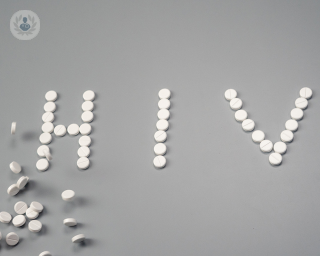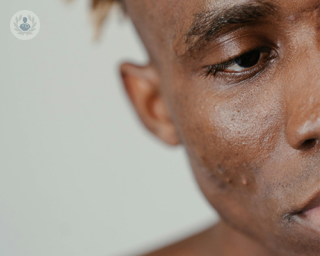What is sexual health?
Sexual health is too often seen in negative terms, and usually focuses on unplanned pregnancies, sexually transmitted infections (STIs) and abusive or violent relationships. Sexual health is about enjoying safe, happy sex and feeling good about the experiences without regretting anything. This includes being sensible in using contraception to prevent unwanted pregnancy and condoms to protect against STIs.
According to the World Health Organisation: ““Sexual health is a state of physical, emotional, mental and social well-being in relation to sexuality; it is not merely the absence of disease, dysfunction or infirmity. Sexual health requires a positive and respectful approach to sexuality and sexual relationships, as well as the possibility of having pleasurable and safe sexual experiences, free of coercion, discrimination and violence. For sexual health to be attained and maintained, the sexual rights of all persons must be respected, protected and fulfilled.”

How can I have good sexual health?
The following can help in having positive sexual experiences:
- Having sex when it’s consensual, mutual and equal
- Not being forced into having unwanted sex
- Not forcing others into sex that they don’t want
- Feeling comfortable with your sexual orientation – whether heterosexual, gay, lesbian or bisexual
- Using condoms to prevent STIs
What is sexuality?
Sexuality is not just about sex, but also includes sexual orientation, such as who a person is attracted to. It refers to whether a person identifies as heterosexual, homosexual or bisexual and their sexual fantasies, attitudes and values about sex. Sexuality can be changed over time. It can be influenced by self-image, social relationships, senses and emotions.
Am I ready for sex?
It is important for a person to know what is right for them and make their own decision. It is recommended to talk it through with someone that they are close to and can trust if they have any concerns about sexual relationships. It is important that no one forces a person to have sex and that if they do have intercourse, it should not be for the wrong reasons.
How to stay safe and healthy
Sexual health is not just about steering clear of STIs, but it is also about having safe, happy sexual experiences. This includes having respectful relationships where no one is forced to do anything that they don’t want to. It is important to feel good about sexual intercourse and looking after both people in the relationship. Being sexually healthy means taking care of physical and emotional health by practising safe sex, being comfortable and confident with body image, sexuality and relationships.
05-18-2017 05-03-2023Sexual health
Miss Nicole Zenner - Obstetrics & gynaecology
Created on: 05-18-2017
Updated on: 05-03-2023
Edited by: Carlota Pano
What is sexual health?
Sexual health is too often seen in negative terms, and usually focuses on unplanned pregnancies, sexually transmitted infections (STIs) and abusive or violent relationships. Sexual health is about enjoying safe, happy sex and feeling good about the experiences without regretting anything. This includes being sensible in using contraception to prevent unwanted pregnancy and condoms to protect against STIs.
According to the World Health Organisation: ““Sexual health is a state of physical, emotional, mental and social well-being in relation to sexuality; it is not merely the absence of disease, dysfunction or infirmity. Sexual health requires a positive and respectful approach to sexuality and sexual relationships, as well as the possibility of having pleasurable and safe sexual experiences, free of coercion, discrimination and violence. For sexual health to be attained and maintained, the sexual rights of all persons must be respected, protected and fulfilled.”

How can I have good sexual health?
The following can help in having positive sexual experiences:
- Having sex when it’s consensual, mutual and equal
- Not being forced into having unwanted sex
- Not forcing others into sex that they don’t want
- Feeling comfortable with your sexual orientation – whether heterosexual, gay, lesbian or bisexual
- Using condoms to prevent STIs
What is sexuality?
Sexuality is not just about sex, but also includes sexual orientation, such as who a person is attracted to. It refers to whether a person identifies as heterosexual, homosexual or bisexual and their sexual fantasies, attitudes and values about sex. Sexuality can be changed over time. It can be influenced by self-image, social relationships, senses and emotions.
Am I ready for sex?
It is important for a person to know what is right for them and make their own decision. It is recommended to talk it through with someone that they are close to and can trust if they have any concerns about sexual relationships. It is important that no one forces a person to have sex and that if they do have intercourse, it should not be for the wrong reasons.
How to stay safe and healthy
Sexual health is not just about steering clear of STIs, but it is also about having safe, happy sexual experiences. This includes having respectful relationships where no one is forced to do anything that they don’t want to. It is important to feel good about sexual intercourse and looking after both people in the relationship. Being sexually healthy means taking care of physical and emotional health by practising safe sex, being comfortable and confident with body image, sexuality and relationships.


Low libido in men: Causes, diagnosis, and treatment
By Mr Michael Wanis
2024-11-21
Low libido, commonly known as low sex drive, is a subtle aspect of men's sexual health marked by a reduced interest in sexual activities. While it differs from erectile dysfunction, the two often overlap, influenced by factors that tend to gain prominence as men age. In his latest online article, Mr Michael Wanis explores low libido, and finds that it involves more than just physical aspects, covering psychological, lifestyle, and medical factors that collectively impact male sexual well-being. See more


What is the best treatment for HIV?
By Dr Indrajith Karunaratne
2024-11-20
While we still don't have a widespread drug that can cure the disease, there are a wide variety of effective treatments available for people with HIV, allowing them to live a long and healthy life with no risk of transmitting the virus to their partners. So, we spoke to Dr Indrajith Karunaratne, a leading consultant in genitourinary medicine to understand more about these treatments and what the general outlook is like now for people living with HIV. See more


What you should know about mycoplasma genitalium
By Dr Wayne Cottrell
2024-11-20
It may not be as well known as other sexually-transmitted infections, but mycoplasma genitalium is no less concerning. Here to tell us all about why it's important to get it treated is leading London GP Dr Wayne Cottrell. He discusses just what this condition is in further detail, how it’s different from chlamydia and what can happen if it’s left untreated, in this comprehensive article. See more


Why are sexual health check-ups important?
By Dr Priyanka Patel
2024-11-20
Sexual health check-ups are essential because, while sexually transmitted infections (STIs) can be silent, they can also have significant health implications. STIs such as chlamydia can affect female fertility and HIV weakens the immune system. In this informative article, leading consultant gynaecologist Dr Priyanka Patel provides a detailed in-depth look at this topic. See more
Experts in Sexual health
-
Dr Daniel Wright
GP (general practitioner)Expert in:
- Sexual health
- Sexually transmitted infections (STIs)
- Hormone replacement therapy (HRT)
- Allergy
- Child development
- Acne
-
Dr Wayne Cottrell
GP (general practitioner)Expert in:
- Sexually transmitted infections (STIs)
- Men's health check
- Sexual health
- Vaccinations
- Paediatrics
- Genital warts
-
Miss Nicole Zenner
Obstetrics & gynaecologyExpert in:
- Colposcopy
- Sexual health
- Abnormal smear test
- Lichen sclerosus
- Vulvar precancer
- Dyspareunia
-
Dr Amar Lally
GP (general practitioner)Expert in:
- Cosmetic dermatology
- Men's health check
- Sexual health
- Women's health
- Weight loss
- Sexually transmitted infections (STIs)
-
Dr Lawen Muheden
GP (general practitioner)Expert in:
- Men's health check
- Sports medicine
- Health check up (health screening)
- Sexual health
- Nutrition
- See all

Midland Health Birmingham
Midland Health Birmingham
Midland Health, 23a Highfield Road
No existe teléfono en el centro.
By using the telephone number provided by TOP DOCTORS, you automatically agree to let us use your phone number for statistical and commercial purposes. For further information, read our Privacy Policy
Top Doctors

St Erme Medical
St Erme Medical
St Erme Medical St Erme Truro TR4 9BW
No existe teléfono en el centro.
By using the telephone number provided by TOP DOCTORS, you automatically agree to let us use your phone number for statistical and commercial purposes. For further information, read our Privacy Policy
Top Doctors

Pixie and Sera
Pixie and Sera
5 Devonshire Pl, London W1G 6HL
No existe teléfono en el centro.
By using the telephone number provided by TOP DOCTORS, you automatically agree to let us use your phone number for statistical and commercial purposes. For further information, read our Privacy Policy
Top Doctors
-
Midland Health Birmingham
Midland Health, 23a Highfield Road, EdgbastonExpert in:
- Diagnostic Imaging
- Pregnancy
- Women’s health
- General practice
- Menopause
- Sexual health
-
St Erme Medical
St Erme Medical St Erme Truro TR4 9BW, TruroExpert in:
- Blood test
- Women’s health
- General practice
- Menopause
- Health check up
- Sexual health
-
Pixie and Sera
5 Devonshire Pl, London W1G 6HL, W1G Marylebone LondonExpert in:
- Full Body Check
- Women’s health
- Menopause
- Nutrition and Dietetics
- Health check up
- Sexual health
- See all
- Most viewed diseases, medical tests, and treatments
- Menopause support
- Pelvic ultrasound
- Complex endometriosis
- Undescended testicle (Cryptorchidism)
- Migraine
- Maternal mental health
- Joint pain
- Nutrition
- Weight loss injections
- Testicular ultrasound







